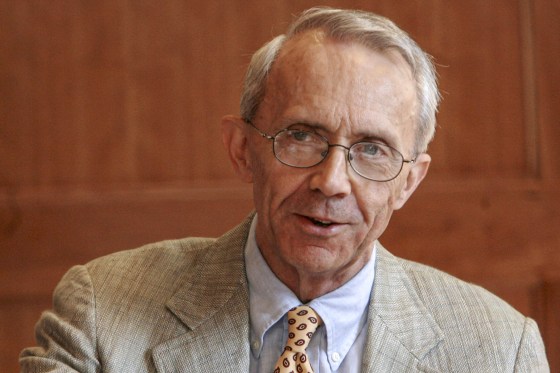In the wake of retired Supreme Court Justice David Souter’s passing, there will inevitably be efforts to pinpoint his most consequential rulings. Some will, as The New York Times’ Linda Greenhouse wrote Friday morning, look harder than others; she noted that Souter’s “name was on so few significant opinions and his profile at the court was so low that after his first few years, legal academia essentially stopped paying attention to him.”
But perhaps Souter’s biggest impact was less on any area of the law or specific cases than on the transformation of Supreme Court nominations and the vetting of would-be justices.
As Greenhouse mentions, by his second year on the high court, Souter had already become “the justice who surprised the president who appointed him” and who “left conservative Republicans bitterly disappointed.” In particular, it was Souter’s 1992 vote in Planned Parenthood v. Casey — which largely upheld Roe v. Wade — that calcified conservatives’ disdain for him.
I’d argue that Souter’s perceived betrayal of conservatives has had two long-term effects on federal judicial nominations:
- First, except for serving roughly three months on the U.S. Court of Appeals for the 1st Circuit, Souter’s entire professional history as a lawyer and judge was in New Hampshire. (A quiet intellectual, Souter served as a deputy to then-New Hampshire Attorney General Warren Rudman, who became his longtime “mentor, friend, and political patron,” as The Washington Post put it, then became the AG himself after Rudman’s election to the U.S. Senate and later was a justice on New Hampshire’s Supreme Court.) But with what the Post described as “his limited trail of opinions, legal articles or speeches,” he became the “stealth candidate” the George H.W. Bush White House believed it could get confirmed, someone whose views on topics that mattered deeply to conservatives and liberals alike were difficult to discern. Not coincidentally, since Souter, we have not seen justices come from state service. Indeed, every member of the current court except for Elena Kagan, who had been the dean of Harvard Law School and Barack Obama’s first solicitor general, was previously a federal appeals court judge (and two were district court judges as well).
- Second, and more importantly, the disappointment that conservatives felt after Souter’s 1990 nomination — and the Casey decision especially — was, in the words of then-New Hampshire Gov. John Sununu, who had vouched for Souter along with then-President George H.W. Bush, “a major impetus among other things for the efforts of groups like the Federalist Society that put together a list of judges for Trump and so on.” ProPublica wrote that the Federalist Society’s Leonard Leo had a pivotal “aha” moment in the wake of Casey: “Here was the greatest challenge to the movement: Even an ostensibly conservative nominee could disappoint. So Leo and his allies set out to solve this recurring problem. They needed to cultivate nominees who would not only start out loyal to the cause but remain stalwart through all countervailing mainstream pressures.” And their rallying cry, as articulated in a 2000 speech by Bill Pryor, now the chief judge of the 11th Circuit, was “No more Souters!”
But while the Federalist Society was founded during Ronald Reagan’s first term, it did not yet have a cadre of loyal, experienced potential judicial nominees until George W. Bush’s presidency. As Slate noted in 2017:
By the time George W. Bush became president in 2001, though, the Federalist Society had grown in size and prominence. For the first time, the conservative legal movement dominated Department of Justice and judicial appointments. Federalist Society members Brett Kavanaugh and Viet Dinh held key positions involving judicial selection in the new administration. Meanwhile, an increasing number of society members had developed credentials that made them credible candidates for federal appellate judgeships. About half of Bush’s appointments to the courts of appeals went to society members, including Trump front-runners Hardiman, Pryor, and Gorsuch. Bush also appointed John Roberts and Samuel Alito, both with significant ties to the society, to the Supreme Court.
By March 2020, however, the organization’s influence had soared. According to a review of those nominated in Donald Trump’s first term and confirmed to federal appeals courts by that time, all but eight of 51 judges had ties to the Federalist Society. All three of Trump’s Supreme Court nominees (Neil Gorsuch, Brett Kavanaugh and Amy Coney Barrett) are also members, as are the three other conservative justices.
And that begs the question: If Souter had not deviated from conservatives’ expectations, would the Federalist Society have grown so rapidly or insisted as strenuously on influencing federal judicial nominations?
And would we be bemoaning the politicization and delegitimizing of the Supreme Court, something that itself is said to have broken Souter’s heart? After all, on the day that the court handed down its infamous decision in Bush v. Gore, Souter gave each of his law clerks a copy of a Robert Frost poem that ends with:
The question that he frames in all but words
Is what to make of a diminished thing.

